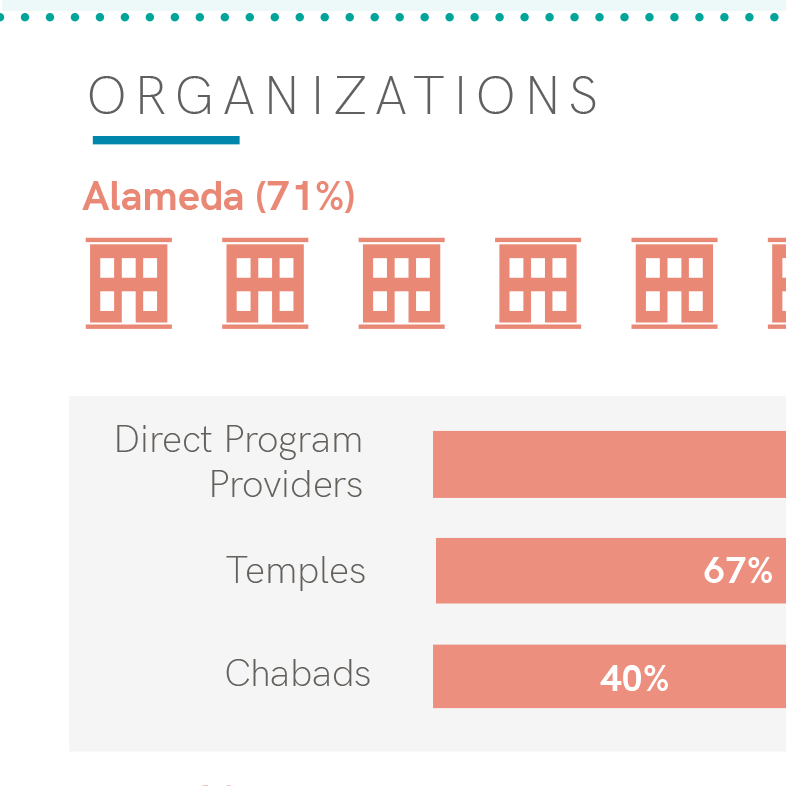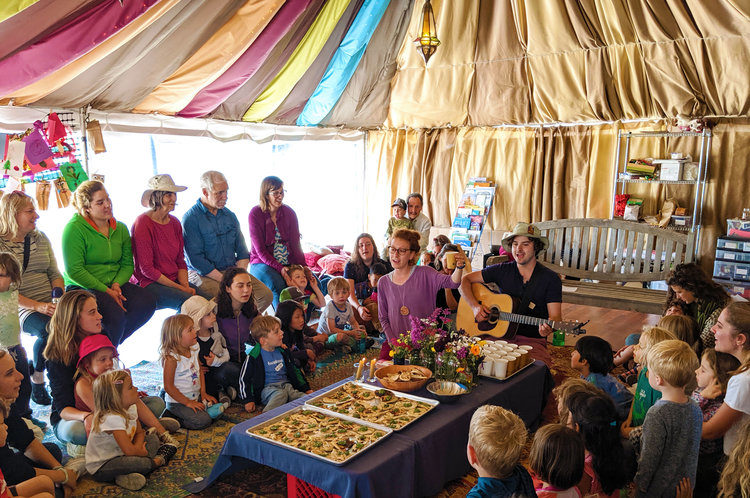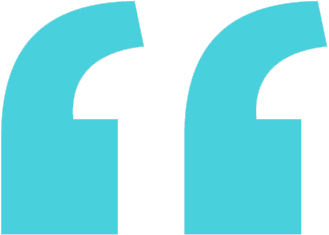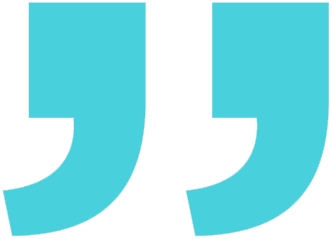Challenge
Based in the San Francisco East Bay, the Rodan Family Foundation was established in 2018 with a clear goal: to strengthen local Jewish community for the next generation. Funds are targeted to be spent down through 2035 in an effort to drive strategic, tangible change well within the founders’ lifetimes.
Beyond having a clear goal and timetable for impact, the Foundation lacked the expertise and experience to inform a smart philanthropic investment strategy. The Foundation did not want to move forward relying only on personal feelings and assumptions about the community’s needs and wants. Nor did it want ambiguous measures of success. Thus, the Foundation engaged Rosov Consulting to design and implement a plan to gather data and provide objective analysis about the community—the organizational landscape, target population, communal strengths, weaknesses, and opportunities for improvement. This body of work would ultimately serve as the building blocks of the Foundation’s strategic local philanthropy.
Approach
The Foundation and Rosov Consulting worked in partnership to first develop a data-gathering strategy. In part, this strategy was guided by the Foundation’s intent to focus its philanthropy on a handful of life stages believed to offer opportunities for lifelong Jewish connection: families with young children; youth and teens; college students; and young adults on the verge of forming new families and homes of their own.
Rosov Consulting began its research by conducting extensive secondary analysis of the 2018 “Portrait of Bay Area Jewish Life and Communities” to better understand demographics of the under-40 age cohorts in the community. Then, to hear different perspectives and to gain a more nuanced understanding of local Jewish life, Rosov Consulting conducted interviews with field experts working with these age cohorts, such as the director of the ECE initiative at the local Federation and the executive director of Berkeley Hillel. Rosov Consulting also interviewed professional leaders of local organizations, such as Urban Adamah and Studio 70.
At the same time, Rosov Consulting undertook a comprehensive program “inventory” of 56 organizations serving East Bay Jews and their families (which represent approximately 73% of all local organizations, including all major local organizations and some national organizations with a local presence). This inventory directly addressed key questions the Foundation and Rosov Consulting wanted to answer:
- Are Jewish programs reaching the Jewish people living in the East Bay?
- How full are they? Are local ECE centers, summers camps, day schools, and supplementary schools over or under “subscribed?”
- How does their capacity stack up to other communities around the country?
In other words, are the community’s offerings meeting the needs of the Jewish community’s “consumers?”
Rosov Consulting’s work enabled the Foundation to glean important information about the local Jewish population, the organizational landscape, the capacity levels of programs and the degrees to which community members were using them.
Results

Rosov Consulting’s methodical approach painted a clear, evidence-based picture of the East Bay Jewish education and engagement ecosystem—and the people in it. The Foundation especially gained a new understanding of the diversity of the community, including percentages of Jews of Color, multiracial Jewish families, and LGBTQ+ Jews. Moreover, as desired, the Foundation learned important information about which offerings, such as ECE centers, were at full capacity and which, such as youth and teen groups, were under capacity. There also were important learnings about the physical location of programs versus where the target audiences lived, which helped the Foundation identify specific geographic subareas on which it might focus.
Informed by this data, the Foundation developed three strategic priorities: increase Jewish preschool market penetration; broaden participation in Jewish communal life among families with young kids and young adults through quality programming; and ensure a healthy ecosystem for organizations serving target audiences. In line with the Foundation’s commitment to data, measurement, and accountability, it also contracted with Rosov Consulting to develop clear, specific, actionable success measures through which the Foundation could easily track progress toward goals over time.
Beyond these important philanthropic decisions, the Foundation committed to sharing the key findings with the broader local Jewish community. Together with Rosov Consulting, they held community and funder briefings to share learnings and to answer questions. In certain areas, such as diversity, equity, and inclusion, these briefings included a “why and how to collect data” segment, since most organizations were not collecting information about these demographic characteristics.
Over time, the Foundation has released requests for proposals (RFPs) to support organizations and programs in each priority and to drive the communal conversation about better meeting the needs of the local community. The Foundation, now past its nascent stage, has developed deep knowledge of the local Jewish ecosystem and will remain data-driven toward its strategic priorities. One challenge, faced by many others as well, is determining how to utilize rich insights from a pre-pandemic moment in time, while remaining nimble and addressing challenges in the present. The Foundation has not hesitated to reprioritize; for example, making preschools more affordable is now a bigger issue than increasing the capacity of preschools. These decisions and others are made by a funder now equipped with information—vital data—to pursue its vision strategically, creating change in a community about which it deeply cares.


